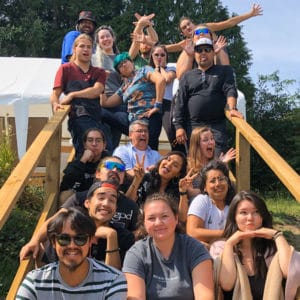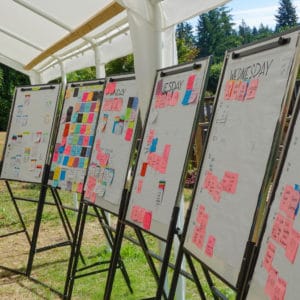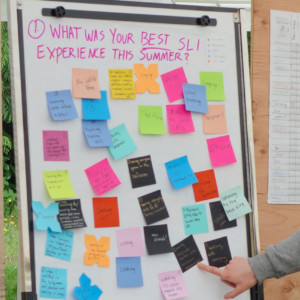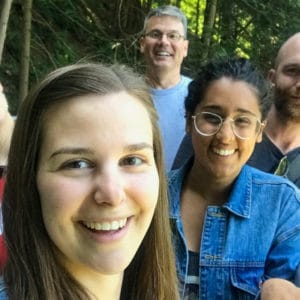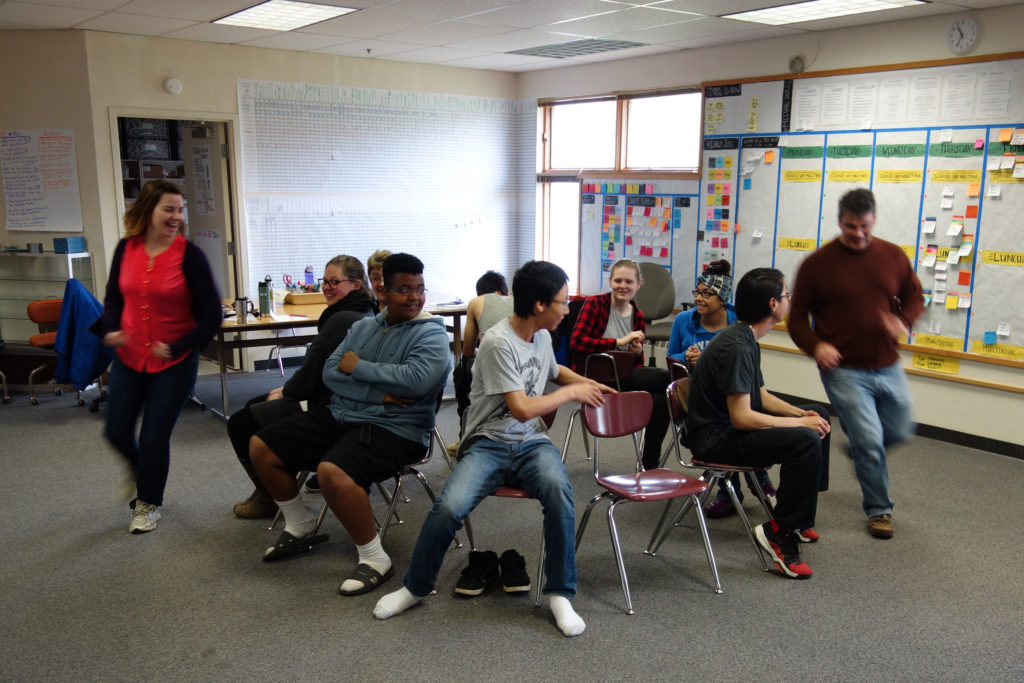
What you can expect as an intern:
You will learn how to use WAYK.
One of the main purposes of the WAYK Summer Intensive is to provide a comprehensive training in WAYK skills, something that is difficult to demonstrate or even explain in a week-long workshop or a few language lessons. WAYK interns will learn all about WAYK techniques and how to wield them well in a variety of language learning and teaching situations. Interns also learn how to use the project management tools that WAYK employs to keep projects running smoothly.
You will practice learning new languages through immersion.
Perhaps one of the most critical skills that WAYK can teach is how to acquire language through immersion interactions with fluent speakers (or sometimes just speakers that are more fluent than you are). WAYK interns are very valuable to host communities as a support to local language workers who are also learning this skill. Additionally, since many of our program participants know multiple languages, a frequent activity during our downtime is practicing using WAYK techniques to learn from each other.
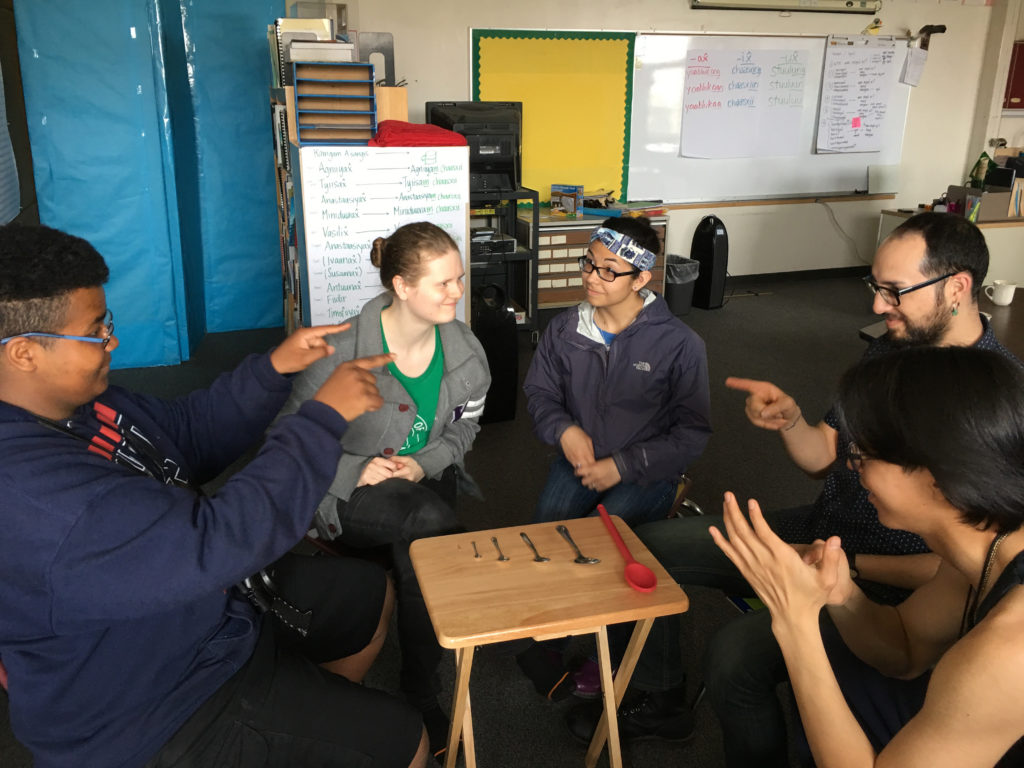
You will teach language lessons before you are fluent in the language.
A key to WAYK’s philosophy is that WAYK training prepares players to teach confidently what they know regardless of their overall level of fluency. As a member of the WAYK team, interns will practice and hone this skill by teaching the language they acquire to other members of the Summer Intensive language team. It is extremely helpful for all interns to teach in order to solidify their own knowledge, but, more than that, teaching is a necessary part of creating and testing lessons and enhancing the overall efficiency and effectiveness of the WAYK team. Developing good teaching strategies that will support student success is a huge part of what we do.
You will visit a place that few people get to visit.
St. Paul Island, is a remote location that even most Alaskans never get to visit. The larger of the two inhabited Pribilof Islands, St. Paul is located in the Bering Strait, north of the Aleutian archipelago. St. Paul is one of the primary breeding grounds for northern fur seals in the summer months; it is estimated that 50% of the northern fur seal population breeds on the shores of the Pribilofs. St. Paul has been home to Unangax̂ people since the late 1700s, when Russian traders forced families from Unalaska, Unga, and Atka to relocate to the Pribilofs to harvest fur seals. This practice continued after Russia sold Alaska to the United States (due, in large part, to the lucrative fur seal industry) in 1867 and up until the last commercial seal harvest on St. Paul in 1984. Today, fur seals are still harvested in very small numbers as part of the local subsistence diet.
St. Paul is only accessible by air and sea. To get to St. Paul, we will take a 4-hour flight from Anchorage (on a propeller plane—bring earplugs!). Flights between St. Paul Island and Anchorage are operated by PenAir three times a week (Sunday, Wednesdays, and Fridays) depending on the weather, and tend to be rather expensive (about $700-$900 round trip). On average, summer days on St. Paul Island are mild and long with temperatures in the 40s-60s and almost 18 hours of daylight in midsummer. Mist, wind, and fog are common. In addition to about 500 people, and a large number of northern fur seals, St. Paul is home to arctic fox, sea lions, shrews, reindeer, and millions of seabirds. There are no trees, no dogs, and no rats on the Pribilof Islands. St. Paul is a small community; the island has one school, one post office, one health clinic, one church (Russian Orthodox) and one small store. The island is fairly limited in terms of connectivity. Internet access is typically expensive, slow, and unreliable. Most wireless carriers do not have coverage on the island, with the exception of Alaska-based GCI.
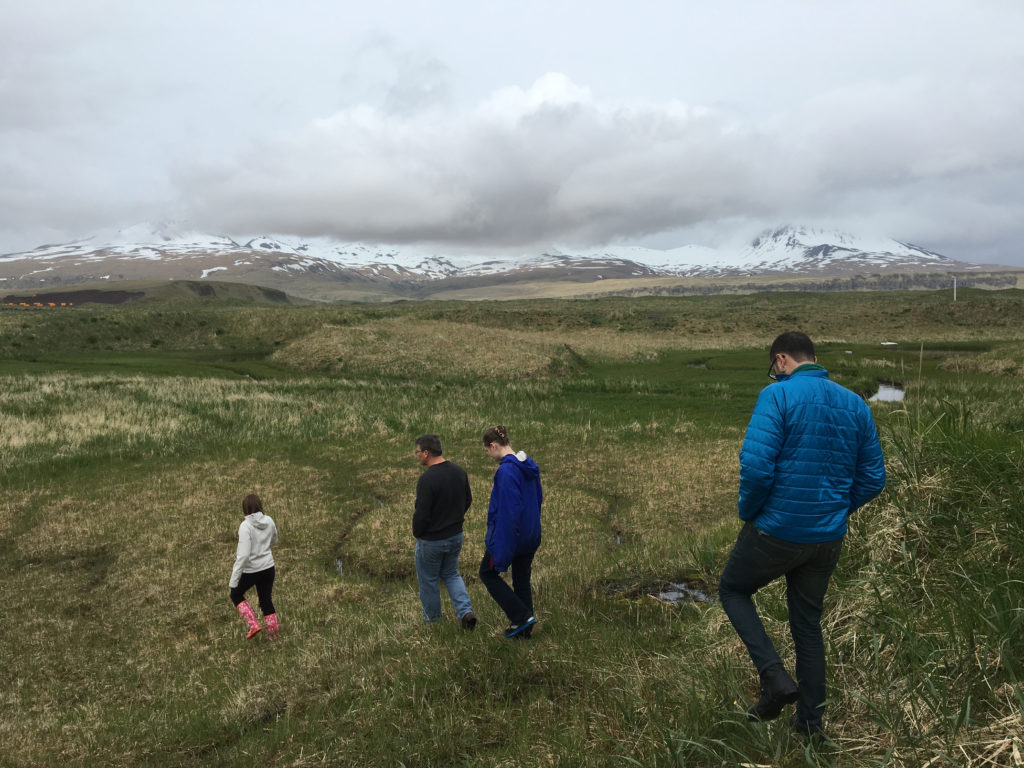
You will write about and share your experiences.
Each summer, we ask our interns to write about their experiences in blog posts that we share on the WAYK website. Because language revitalization field work and WAYK itself can be hard to summarize and explain, we rely on interns’ reflections to give our readers a sense of what a Summer Intensive (or any language revitalization program) is like. In addition to their introduction, we ask our interns to write approximately two short blog posts every week. These posts will be posted not just during the summer, but throughout the following academic year.
You will work hard.
Taking on a WAYK internship is a considerable endeavor. In one summer, our interns learn WAYK skills, a new language, pedagogical strategies, and how to use project management tools. Due to the nature of language learning and language revitalization projects, a significant time commitment is required. We ask that interns do not bring additional (outside) projects with them to complete during the Summer Intensive. To make worthwhile progress toward our summer goals, interns need immersion exposure to the language on a daily basis for as many weeks as possible. WAYK interns work with the language team and speakers from 9:00 am – 4:30 pm, five days a week, for 12 weeks. Additionally, they are responsible for working in pairs to prepare meals for the WAYK team and completing household tasks on a rotating schedule. Our daily schedule may shift to include evening and weekend visits with fluent speakers and other events, but typically weekends will be reserved for downtime, “life maintenance” (laundry, grocery shopping, etc.), and learning languages from each other!
You will get Full!
Working on a language revitalization project can be both an incredibly fulfilling and an incredibly frustrating experience. Participants can get Full for many reasons: being away from home, being in an unfamiliar/isolated place, learning in a way that’s different from what they’re used to, feeling tired, hungry, overwhelmed, etc. Part of our work this summer is developing each person’s ability to tell when they themselves are Full or when others around them are Full. As a team, we will work together to try and keep our Full levels as low as possible, but we will also have downtime planned into our daily and weekly schedules to ensure that everyone gets time to relax and recuperate. Managing everyone’s Full levels is another reason why we ask that interns not bring extra projects with them to the Summer Intensive.
You will have a fun, unforgettable experience.
A language learning experience like a WAYK Summer Intensive is certainly hard work, but it’s also so much fun. You might be surprised at the great friendships that come out of a shared experience like this one. You will get to learn and play with the WAYK method, give feedback, and help make our work even more effective in the future. And you will contribute to strengthening an endangered language and supporting new speakers, which, according to WAYK, is one of the best ways to spend a summer!
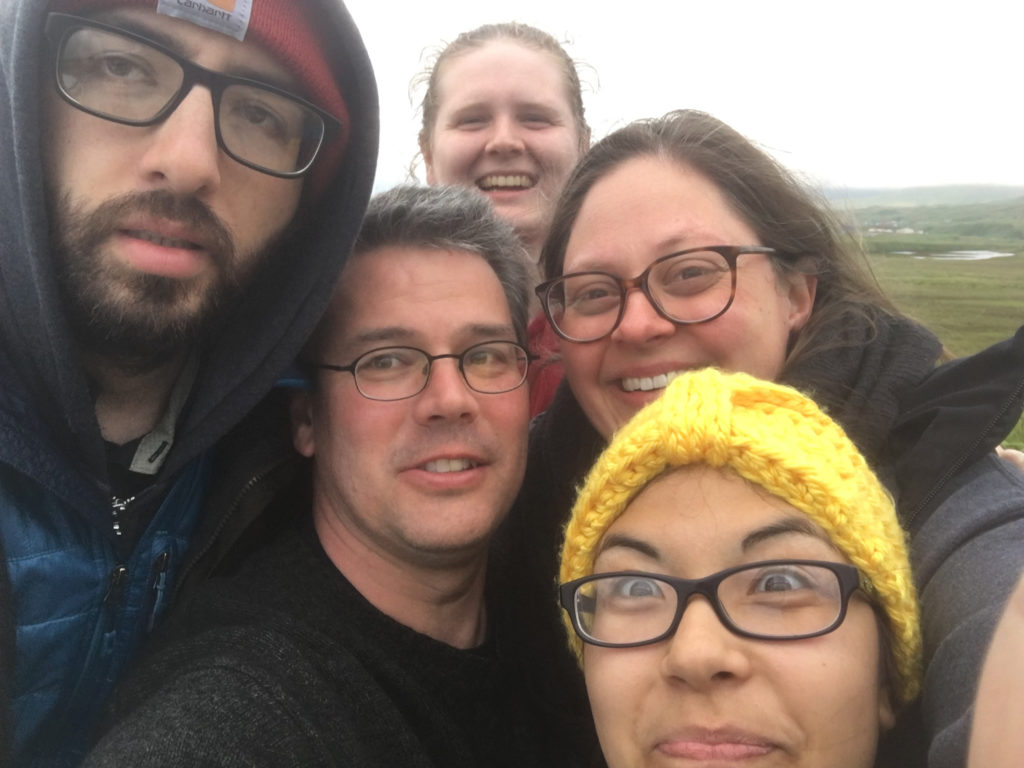
What WAYK expects from you:
You will share space thoughtfully and contribute to the collective comfort of the team.
This summer the entire WAYK team will be sharing living space and working space in St. Paul. Spending the summer in close quarters is great for language learning, WAYK skill building, and strategizing, but it means that everyone needs to be especially aware of their conduct and how it affects the group. It will also take our collective effort to make sure both the house and the language team headquarters run smoothly and are free of avoidable drama. To that end:
- Not only will the WAYK house will be a “dry house” (i.e., no drugs or alcohol will be allowed on the premises) but we ask our interns to commit to a “dry summer.” This is a hard and fast rule that we expect everyone to adhere to.
- New romantic relationships between members of the team or between the WAYK team and members of the host community are strongly discouraged. We’ve learned from experience: If it’s a good idea now, it’ll be a great idea later! (Wait until later!)
- We expect all participants to share responsibilities when it comes to cooking, cleaning, and chores. We will provide a schedule for cooking, cleaning, etc.
- We cannot guarantee that WAYK team members will have their own rooms. Due to limited housing availability on St. Paul, there is a possibility that we will be assigned to a living space that requires roommates. Whether participants are sharing a room or not, we expect everyone to be respectful of shared space, quiet hours, and the “Meadow.”
- No visitors will be allowed during the Summer Intensive. Neither our schedule nor the limited housing on St. Paul will permit us to accommodate visitors (friends or family) during the project.
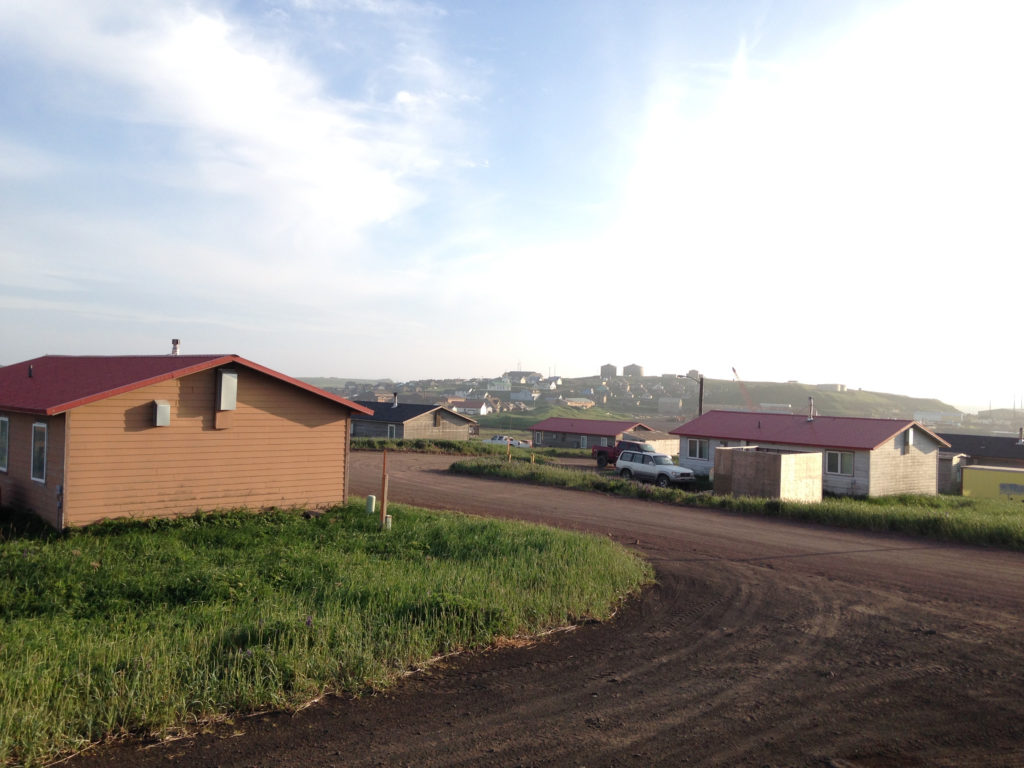
You will prioritize the language goals of the community above your own personal language goals. We expect that your primary goal is NOT to get fluent in the language.
While interns who spend an entire summer working with Unangam Tunuu will undoubtedly reach some level of proficiency in the language, we need to be clear that this is really a means to an end. At WAYK we have an anti-TQ (i.e., a behavior to avoid) called “Trophy Hunting,” which refers to the idea of people learning another language just for the sake of saying they are fluent in it. There are lots of people who can speak a ridiculous number of languages, but have never used their knowledge to create another fluent speaker.
Our mission is entirely different. We have been invited to support the local and regional language team in their quest for fluency, in an effort to build further language learning and teaching capacity in the region. In short: it’s not about us.
This can be especially difficult, because often the people who make great WAYK interns (outsiders without an emotional connection to the language, who have experience learning multiple languages already) will be able to learn a new language very easily and quickly. But even if someone has the ability to learn a language quickly, it doesn’t always mean that they should. It’s more important to support local learners who might be inhibited by the pressure they feel to become fluent. When revitalizing a language it’s important to create new speakers, but equally important that those new speakers are part of a local, sustained effort to keep the language vital.
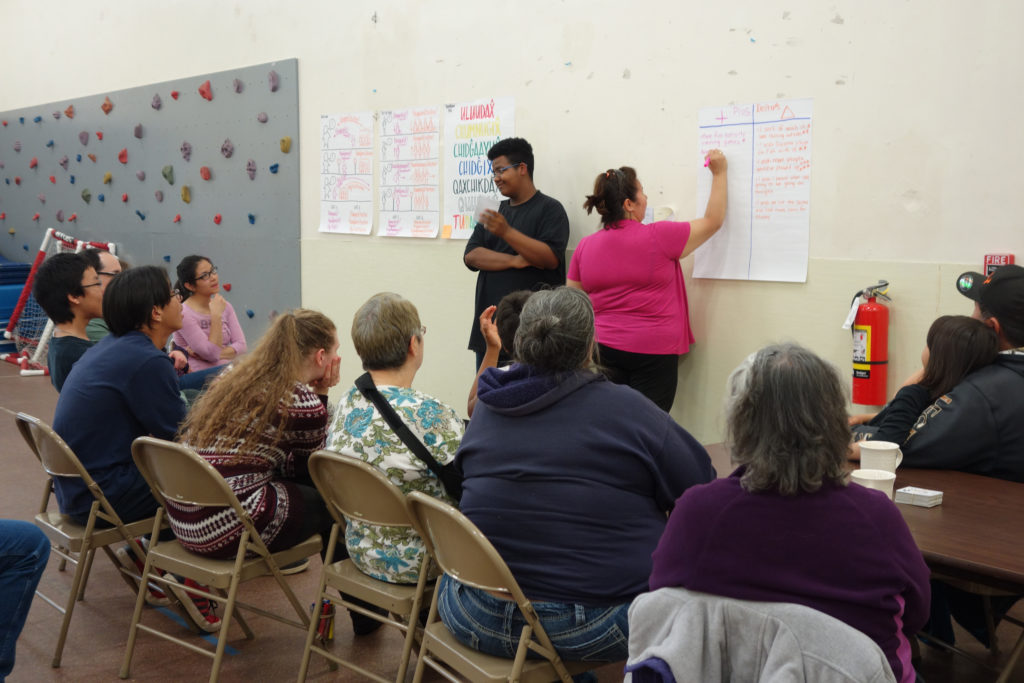
You will NOT engage in behavior that could be distracting or detrimental to the project.
It is hard to anticipate what exact behavior will become problematic in the future. But we can say that we will be visitors on the island, and we don’t want to wear out our welcome. Ongoing discussions of cultural protocol and our relationship with the community will be included in the orientation and throughout the project. In the meantime, here are a few examples:
- This is not the time or venue to debate political issues such as global warming, offshore drilling, marriage equality, or the legalization of marijuana. While we all may feel passionately about these issues, publicizing our feelings may distract from our primary focus. Our job is to get the community fluent enough to have such discussions in the language after we’ve left.
- We need to be mindful about publicizing the language and the project through social media or other means without explicit permission from community members.
- We also need to avoid making the assumption that everyone should feel obligated to learn their heritage language. Many people don’t, and it’s not our job to judge or argue with them.
Please note: Although interns are volunteering their time, the host community will be paying for their transportation, lodging, and food. This amounts to thousands of dollars per intern for the summer. Additionally, the conduct of the WAYK interns reflects on our organization and can affect our relationships with future partner communities. Because of this, all WAYK interns will be held to the highest standards of integrity and trust. As a team, our first priority must be to the language and the host community, and if there is a situation where this priority is not respected, it is possible that a participant will be asked to leave the program early, no questions asked.
We hope that these expectations answer any questions you might have if you’re considering a summer internship. If you have further questions, please email us. Click here to start your application.

